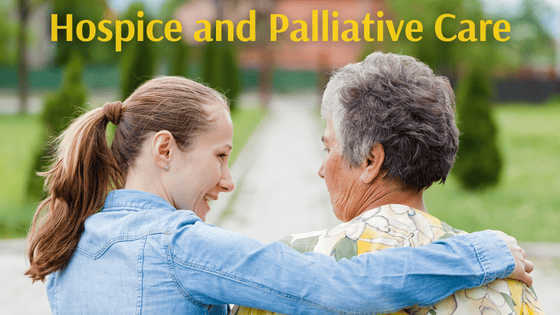As I was preparing to graduate with my Master’s Degree in Social Work (MSW) with a concentration in Mental Health and Substance Abuse, I did not anticipate that my first post-graduate position would be in Hospice and Palliative Care. My in-field experience leading me to this point was focused on children and families in the foster care system, as well as working with severe and persistent mental illness in adults under the Community Mental Health umbrella. Working in gerontology was not a field in undergrad or graduate school that I would have ever considered. For eight years, I was employed as a Medical Social Worker. I provided treatment and support to patients and their families under the home care umbrella and in the inpatient Hospice Home for end-of-life care. I soon realized this field chose me, and I will be forever grateful that it did. The personal stories and experiences I had the privilege of hearing from this population were such a memorable learning experience for me in so many aspects of my life. It is not every day you can sit down with a WWII veteran and hear of their experience in the war and how they fought at the tender age of 18 for this country in unimaginable circumstances. This would be only one out of thousands of stories people shared with me at the end of their lives.
Working as a medical social worker in hospice and palliative is so much more than just providing emotional support and anticipatory grief therapy. This is a master-level position as it requires extensive knowledge and experience in various fields. I wore many hats under this role that allowed me to provide comfort and peace of mind at many different levels for the patients and families I served. Learning that you are terminally ill is devastating enough, but to have to worry about finances associated with end-of-life care or who will take care of you at the end of life are burdens and worries no one should have to face alone. This is where I stepped in with grace, understanding, and knowledge. How fulfilling to pick up all the pieces that felt so overwhelming and unbearable to patients and families, including but not limited to funeral planning, financial resources, community resources, placement for end of life, ensuring legal paperwork and beneficiaries were in place, tying up loose ends to ease anxiety and fears, listening to their stories and helping them process the journey to this chapter of their life. Ultimately my goal when entering my patients’ life was to ensure everything outside of their medical care was being handled thoroughly and professionally for them to spend time with their loved ones, which is the ultimate gift to someone at the end of life. Is this a job or a calling? Often, my team was referred to as “angels on earth”, a title I still proudly hold onto today.
Fast forward to the present day. For the past three years, I have worked as a clinical therapist, treating my patients through a telehealth setting. I treat a variety of clients ranging from the age of 6 to 75. What a ride this has been as I sit and reflect on all my clinical experience that led me to the areas I specialize in as a clinical therapist. Anticipatory grief, grief processing, and treating patients with chronic pain/illness have all been added to my clinical areas of expertise. I developed such a passion and love for anticipatory grief treatment as I prepared patients and their loved ones for the dying process and death. From the outside eye, many do not understand what a sacred privilege it is to be present when someone takes their last breath and be an instrumental role in providing peace and calm leading to the journey of death.
Please find inspiration in my experience and journey to explore gaining more experience in the field of gerontology, hospice, and palliative care. This experience allowed me to complete my learning and working with populations from birth to death. Clinically I could not be more grateful for this time and the networking with CANs, nurses, physicians, Chaplains, and medical social workers I met along the way. What a beautiful and fulfilling journey it was.
Presently, I work as a clinical director and clinician specializing in anxiety, depression, trauma, ADHD, chronic illnesses, and grief. Please take the time to check out my bio on Telebehavioral Health US website.
**********
We welcome our guest columnist, Amy Mansfield. Amy is the instructor for TCIs course, "Hospice 101", which is available as a self-study and offers 2 CEs.
About Amy Mansfield:
Amy Mansfield, LMSW, is a licensed clinical therapist currently employed at Telebehavioral Health US. Amy uses a telehealth platform to clinically treat her clients for anxiety, depression, post-traumatic stress disorder, and adjustment disorders. Amy treats a vast population of clientele that includes children and families, teenagers, young adults, adults, and clients with chronic and terminal illnesses. Amy is a licensed clinical social worker in the State of Michigan and is a licensed telehealth clinical therapist in the State of Florida. Amy has over 14 years of clinical experience in the field of behavioral therapy and clinical social work. Amy has over 7 years of medical social experience in the field of hospice care. Amy has a diverse background of experience working with patients and their families in both the hospice inpatient setting and homecare. Amy has an extensive background and experience in trauma, grief and loss, end-of-life care, and clinical behavioral interventions. Amy is a compassionate clinician who continues to strive and continually grow in the field of behavioral health and social work.




The course was so informative and I was glued to my screen for the entire duration. I received so much knowledge concerning ethics in telehealth and I am greatly encouraged to read about all the standards and policies that pertain to my practice. Thank you!.